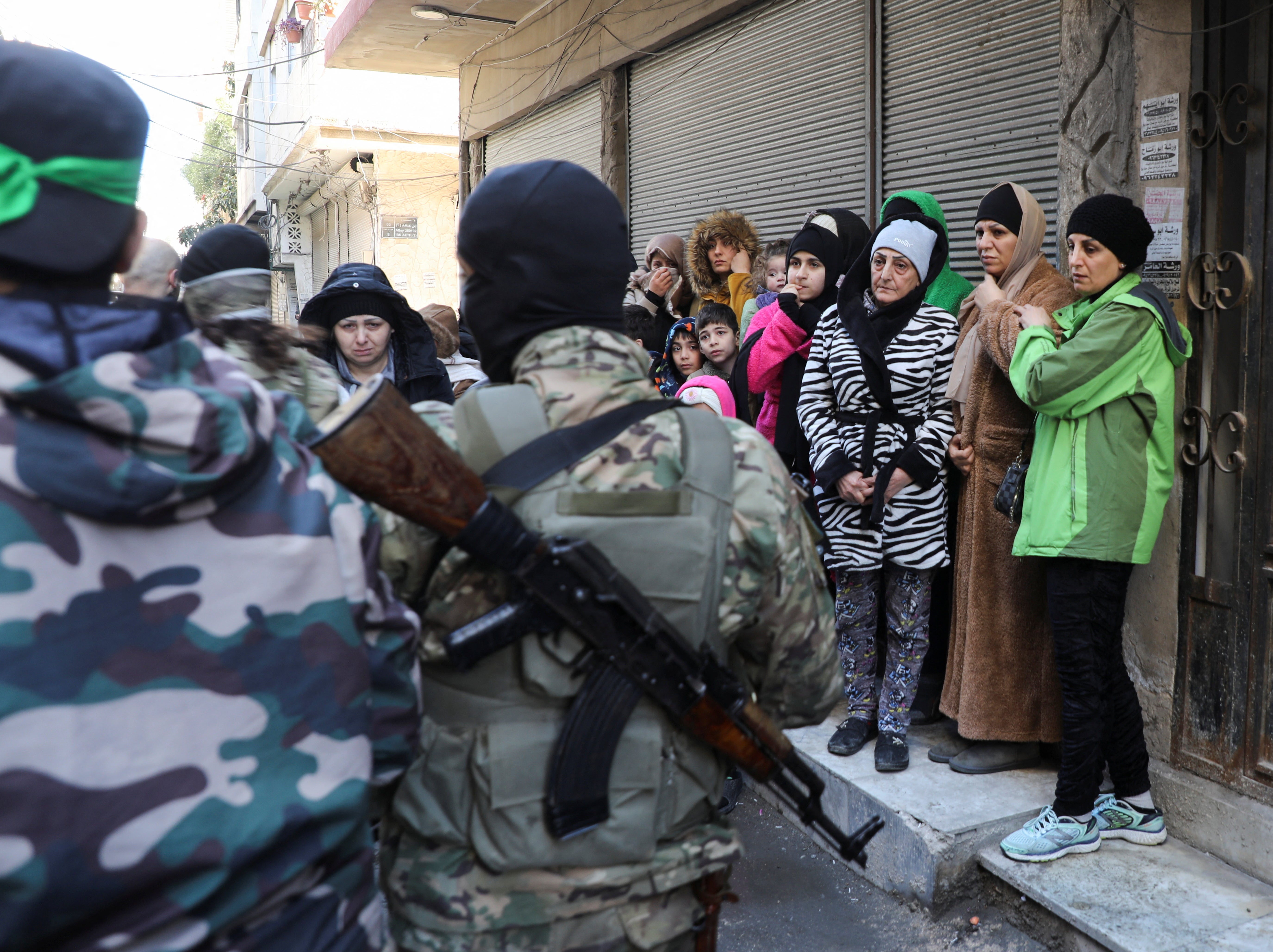New Syrian regime’s school curriculum changes spark backlash
Critics fear increased focus on Islam and removal of content related to Bashar al-Assad’s toppled regime will erode country’s diverse historical and cultural identity
Your support helps us to tell the story
From reproductive rights to climate change to Big Tech, The Independent is on the ground when the story is developing. Whether it's investigating the financials of Elon Musk's pro-Trump PAC or producing our latest documentary, 'The A Word', which shines a light on the American women fighting for reproductive rights, we know how important it is to parse out the facts from the messaging.
At such a critical moment in US history, we need reporters on the ground. Your donation allows us to keep sending journalists to speak to both sides of the story.
The Independent is trusted by Americans across the entire political spectrum. And unlike many other quality news outlets, we choose not to lock Americans out of our reporting and analysis with paywalls. We believe quality journalism should be available to everyone, paid for by those who can afford it.
Your support makes all the difference.Syria’s new regime has announced sweeping changes to the national school curriculum, triggering concerns about “Islamisation”.
Critics fear the changes, including an increased focus on Islam and the removal of content related to the ousted Bashar al-Assad regime, will be divisive and erode the country’s diverse historical and cultural identity.
The changes, first posted on the Ministry of Education’s Facebook page, include replacing the phrase “defending the nation” with “defending Allah” and removing references to pre-Islamic gods.
The curriculum overhaul also removes the big bang theory and evolution from science books, and edits history and philosophy subjects to exclude topics like Chinese philosophical thought and Ottoman rule, which is now being described as “brutal” in the context of Syria’s past.
Another controversial shift is the elimination of the subject of national education, which promoted the Baath Party’s ideology under Mr Assad.
It will be replaced by Islamic or Christian religious education.

The changes, which affect children aged six to 18, are aimed at replacing content seen as glorifying the Assad regime, but the introduction of more religious teaching has led to strong reactions, particularly on social media.
“The current government is a caretaker government that does not have the right to make these amendments,” one user posted on the Ministry of Education’s Facebook page, CNN reported.
Nazir al-Qadri, the new education minister, downplayed the significance of the changes in a statement to the Syrian news agency Sana, claiming the curriculum will stay largely unchanged until expert committees are set up to review the educational material.
He said the revisions are aimed at correcting what he described as “inaccuracies” in the Islamic education curriculum which previously misinterpreted Quranic verses.

In spite of the minister’s assurance, activists, many of whom have returned to Syria after years in exile, are concerned about the lack of consultation with the broader society before implementing such changes. The transitional government’s claim that they are striving for inclusivity appears undermined by these unilateral decisions.
“After reviewing the amendments, it’s clear that aside from removing signs of the criminal Assad regime, the rest of the changes have a distinct religious tone,” Syrian journalist Hussam Hammoud said.
The new Syrian regime, led by Hayat Tahrir al-Sham (HTS), a rebranded Al Qaeda and Isis affiliate, has sought to distance itself from its extremist roots, promising a future of tolerance and coexistence for all religious and ethnic groups.
The curriculum changes have revived fears that HTS is pushing an “Islamist agenda” and sidelining the country’s pluralistic, secular history.
The modifications have sparked calls for protests before the start of the new school term on Sunday, with activists and citizens planning demonstrations against any further changes to the education system or other state institutions without comprehensive public participation.

Join our commenting forum
Join thought-provoking conversations, follow other Independent readers and see their replies
Comments